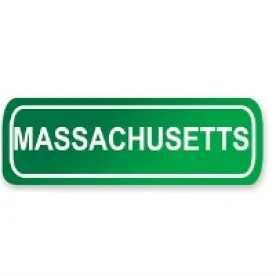Under the Massachusetts Paid Family Leave Law, M.G.L. c. 175M (“MAPFML”), employees and other covered individuals in the Commonwealth will be entitled to a generous set of new leave benefits and rights beginning January 1, 2021. The Department of Family and Medical Leave (the “Department”) recently issued updated MAPFML regulations, effective July 24, 2020 (the “2020 Regulations”). These regulations make several key changes to the MAPFML regulations issued in 2019 (the “2019 Regulations”). In our companion post, we cover the key changes between the 2019 Regulations and the 2020 Regulations. This post examines, in depth, changes affecting the MAPFML “Private Plan” exemption pathway.
Under a Private Plan, employers must provide benefits that are greater than or equal to the benefits provided by MAPFML under the Commonwealth’s program, and the Private Plan must not cost employees any more than they would be required to contribute to the Commonwealth’s plan under MAPFML. Private Plans may either be self-funded or insured, and must meet a number of requirements, including a filing requirement. However, employers who establish a Private Plan need not collect nor remit contributions to the Commonwealth’s MAPFML fund. The potential cost savings appeals to many employers, although such savings are weighed against the burden of plan administration.
Many employers filed for, and received, a Private Plan exemption in 2019 or 2020. Those employers must now take steps to renew their exemptions, ensure that their Private Plans meet the requirements of the 2020 Regulations, and prepare to implement their Private Plans on January 1, 2021. This post updates our post describing the 2019 Regulations, explains the changes from the 2019 Regulations to the 2020 Regulations and describes what employers need to be doing this fall to prepare their Private Plan for 2021.
How The Private Plan Exemption Works
The Private Plan exemption may be requested for a family leave plan, a medical leave plan, or both. If a Private Plan is approved for only one of the two types of leave, the employer must meet all filing and contribution requirements for the leave type for which it has not been approved. We have seen a number of employers establish a Private Plan for the medical leave benefits, and opt into the state for the family leave benefits. This section summarizes the requirements of the Private Plan exemption.
Minimum Private Plan Terms
Family leave benefits – the following minimum terms are required in order for a plan to meet Private Plan exemption for family leave benefits:
-
All employees (full-time, part-time, permanent, or seasonal) must be eligible for family leave benefits.
-
The Private Plan must provide a weekly paid benefit amount that is greater than or equal to the benefit provided by the MAPFML program administered by the Department.
-
Benefits must include, at a minimum:
-
A minimum of 26 weeks of paid leave during the benefit year to provide care to a family member, as defined by MAPFML, with a serious health condition suffered while on active duty in the armed forces;
-
A minimum of 12 weeks of paid leave during the benefit year if their spouse, child, or parent is a current member of the Armed Forces (including the National Guard and reserves) and is on covered active duty or notified of an impending call or order to covered active duty;
-
A minimum of 12 weeks of paid leave during the benefit year to provide care to a family member, as defined by MAPFML, with a serious health condition; and
-
A minimum of 12 weeks of paid leave during the benefit year to bond with a child during the first 12 months after a child’s birth, or the first 12 months after adoption or foster placement of a child under the age of 18.
-
-
The Private Plan must provide job protection while the employee is on qualified leave.
-
The Private Plan must provide for continued employer contributions to employment-related health insurance benefits, if any, at the level and under the conditions coverage would have been provided if the employee had continued working continuously for the duration of qualified leave.
-
[Note]: It is not clear whether “health insurance benefits” refers to major medical benefits only, or should be read more broadly to include other types of medical benefits (such as dental, vision, and health care flexible spending plans). No clarification was provided in the 2020 Regulations.
-
-
The Private Plan must allow for leave to be taken intermittently or on a reduced leave schedule, with the weekly benefit amount being prorated.
-
The Private Plan must specifically state that all presumptions shall be made in favor of the availability of leave and the payment of leave benefits.
Medical leave benefits – the following minimum terms are required in order for a Private Plan to meet Private Plan exemption for medical leave benefits:
-
All employees (full-time, part-time, permanent, or seasonal) must be eligible for medical leave benefits.
-
The Private Plan must provide a weekly paid benefit amount that is greater than or equal to the benefit provided by the MAPFML program administered by the Department.
-
A minimum of 20 weeks of paid medical leave must be available per benefit year if an employee is unable to work due to a serious health condition.
-
The Private Plan must provide job protection while the employee is on qualified leave.
-
The Private Plan must provide for continued employer contributions to employment-related health insurance benefits, if any, at the level and under the conditions coverage would have been provided if the employee had continued working continuously for the duration of qualified leave.
-
See note above.
-
-
The Private Plan must allow for leave to be taken intermittently or on a reduced leave schedule, with the weekly benefit amount being prorated.
-
The Private Plan must specifically state that all presumptions shall be made in favor of the availability of leave and the payment of leave benefits.
Importantly, any exempt Private Plan must also provide benefits to those employees who are no longer employed with a business, so long as they otherwise meet the financial eligibility requirements of the MAPFML (i.e., the Private Plan covers unemployed former employees who apply for benefits for family leave for up to 26 weeks after separation from employment, or until they obtain other employment, whichever is sooner).
[New]: The 2020 Regulation contains a number of clarifications relating to applications by former employees. In particular, if a former employee submits an application for benefits under a Private Plan, the employer has the right to inquire as to whether a former employee is currently employed.
[New]: While an employer using a Private Plan may apply the same financial eligibility standards that apply to the public option, the 2020 Regulations appear to require an employer to consider the wages the individual received from other employers. The employer may, therefore, require an individual to produce verification of such wages. In addition, the 2020 Regulations provide that benefit and leave allotment will be determined based on the work week and wages from the employer at the time of an application for benefits.
The Private Plan Must Contain the Following Appeal Rights and Protections for Employees:
-
Individuals have a right to an appeal to the Department if their application for benefits under the Private Plan is denied. The appealing individual also must provide a copy of the appeal to the employer or covered business entity maintaining the Private Plan.
-
[New]: The 2020 Regulations require the employer or private plan administrator to provide the Department with an individual’s application document within 10 business days following request.
-
[Note]: The 2020 Regulations define “private plan administrator” as “the third-party administrator” of a Private Plan. The employer can serve as the “private plan administrator.”
-
-
[New - Internal Appeal Right]: The 2020 Regulations require that the Private Plan provide for an appeals process with the private plan administrator before a covered individual can exercise its right of appeal with the Department. This appeals process shall not require the covered individual to submit an appeal less than ten calendar days from the receipt of notice of the determination, and must extend the ten calendar-day filing period where an individual establishes to the satisfaction of the Department that circumstances beyond the individual's control prevented the filing of a request for an appeal within the prescribed ten-day filing period
-
[New - Denial Notice Requirement]: The 2020 Regulations require the Private Plan to provide notice to a covered individual as part of any adverse determination under the Private Plan as to their rights under the Private Plan as well as the rights afforded the employee or covered contract worker pursuant to MAPFML.
-
[Note]: The 2020 Regulations are not clear on the contents of the denial notice. At a minimum, it seems that the notice should explain the individual’s right to appeal to the Department.
-
-
[New - No Appeal Rights for Employers]: The 2020 Regulations clarify that the Department’s determination on appeal of an individual’s claim is binding on the private plan administrator and employer.
The Private Plan Must Contain the Following Other Rights and Protections for Employees:
-
The right to job protection during any leave taken; and
-
Protections against retaliation from taking leave or exercising other rights under the MAPFML.
There is an Annual Application and Approval Process
Applications for Private Plans are made through the Massachusetts Department of Revenue’s MassTaxConnect system. The application consists of many questions and requires the calculation and submission of many data points. The application must be approved prior to the quarter in which it will take effect. Exemptions must be renewed annually. The Department has the right to audit any approved Private Plan to ensure compliance with MAPFML and all other state and federal law applicable to the Private Plan and require periodic reporting.
-
[Note]: In 2019, Private Plans could be submitted retroactively for the year beginning October 1, 2019. There is no indication that the Department will offer another retroactive approval opportunity. Applications for the 2020-2021 plan year (either for a new Private Plan or for a renewal of an existing Private Plan) must be submitted on or before September 30, 2020.
Applications for exemptions are accepted on a rolling basis and will be effective no earlier than the quarter immediately following the date of approval. Applications may be submitted no more frequently than once per quarter.
If an application is denied, an applicant may request supplementary review by the Department. The 2020 Regulations indicate that the review request must be submitted electronically through MassTaxConnect, and must be submitted on or before the quarter prior to the Private Plan’s requested effective date. The 2020 Regulations also state that the Department’s determination on appeal is final.
[New]: While approvals generally apply for one year, the 2020 Regulations authorize the Department to establish an approval period of greater or less than a year when the Department deems it necessary. The Department must provide an employer with at least 60 days’ notice of any reduction in the Private Plan approval term.
[New]: The 2020 Regulations clarify that coverage under a Private Plan shall begin no later than the first day of the first quarter following the date of approval or, for Private Plans already approved, an individual’s date of hire.
[New]: The 2020 Regulations indicate that an employer may not apply for an exemption on behalf of only a portion of its covered workforce. Rather, all eligible employees, covered contract workers and former employees must be included in the Private Plan.
[New]: The 2020 Regulations clarify that the Department shall continue to provide paid leave benefits to covered individuals for the entire leave duration for leave filed with the Department prior to the effective date of an employer transferring from the public option to a Private Plan. Conversely, employers shall continue to provide paid leave benefits to covered individuals for the entire leave duration for leave requests filed under a Private Plan prior to the effective date of an employer transferring from a Private Plan exemption to the public option. Private Plans renewed with a new or different insurance carrier must ensure that there are no gaps in coverage for covered individuals.
Private Plan Amendment and Termination
An employer who wishes to amend an approved Private Plan prior to the end of the approved year must notify the Department in writing at least 30 days before any proposed changes to the terms or conditions of the approved Private Plan. The following additional requirements apply for employers who wish to terminate an approved Private Plan:
-
Benefits and benefit eligibility under an approved Private Plan must be maintained for all covered individuals until the effective date of termination or non-renewal of the approved Private Plan.
-
An employer or covered business entity that does not intend to renew its approved Private Plan at the effective date of termination must notify covered individuals and the Department no later than 30 calendar days prior to the effective date of termination. The 2020 Regulations clarify that the termination will be effective on the first day of the first quarter immediately following the date of the termination or non-renewal.
An employer or covered business entity that does not renew an approved Private Plan must continue to provide paid leave benefits under the same terms and conditions of the Private Plan for the entire duration of the leave for a claim that began prior to the effective date of termination.
[New]: The 2020 Regulations clarify that, in the case of intermittent leave, the Private Plan shall maintain coverage until the end of the employee or covered contract worker's benefit year.
[New]: If a Private Plan is not renewed, covered individuals shall be eligible to apply to the Department for benefits on the first day of the first quarter immediately following the date of termination or non-renewal.
[New]: An employer that terminates or non-renews a Private Plan exemption will be required to report prior wages and qualified earnings to Massachusetts Department of Revenue pursuant to 458 CMR 2.04 and 2.05 for the four quarters immediately preceding the termination date of the exemption.
[Note]: 458 CMR 2.04 and 2.05 require employers and covered business entities to not only report wages and earnings, but also to make contributions.
[New]: An employer or covered business entity that dissolves or undergoes an acquisition or merger after the approval of an exemption and before the renewal period shall notify the Department within 60 calendar days of the dissolution or acquisition or merger, or as soon as reasonably practicable, with sufficient documentation to allow the Department to determine, among other things, the effective date of the termination of the private plan, the listing of employees and covered contract workers that are affected, and the name and Federal Employer Identification Number of any acquiring or affiliate organization that will be assuming the employees and covered contract workers affected by the dissolution, acquisition or merger.
Self-insured Private Plans Must Be Bonded
The amount varies by the size of the workforce. According to the Department’s website, for every 25 employees covered by a business, effective January 1, 2021, MAPFML requires a surety bond value of:
-
$6,000 for qualifying family leave plans
-
$10,000 for qualifying medical leave plans
-
$16,000 for qualifying plans for both family and medical.
The Department posted a bond form for self-insurers as well as remittance instructions. The surety company issuing the bond must be authorized to transact business in the Commonwealth, and the 2020 Regulations indicate that the Commonwealth must be listed as obligee.
Fully-insured Private Plans Must Be Covered by a Policy Issued by a Massachusetts-Licensed Insurance Company
The Department has reserved the right to withdraw approval of a Private Plan for a variety of reasons. including, but not limited to:
-
Failure to pay benefits;
-
Failure to pay benefits timely and in a manner consistent with MAPFML;
-
Failure to maintain adequate bond coverage;
-
Misuse of Private Plan trust funds;
-
Adverse changes to the financial condition or licensure status of the employer or covered business entity, Private Plan insurer, or surety company responsible for a bond;
-
Failure or refusal to respond to requests for information or to submit reports, records, or other information that may be required by the Department; and
-
Failure to comply with M.G.L. c. 175M, these regulations, or other state or federal law applicable to the Private Plan.
An employer or covered business entity that fails to maintain a Private Plan as approved by the Department or that has its approval withdrawn may be assessed a penalty of up to the then-current contribution rate (currently, 0.75 percent of its total payroll) for the period it failed to maintain the approved Private Plan, and may also be required to repay to the Commonwealth’s trust fund in the total amount of benefits paid to covered individuals who received benefits from the trust fund.
-
[New]: The 2020 Regulations also provide that the amount may be subject to penalties under MGL c. 62C and interest under MGL c. 62C Section 32.
The above penalty shall also apply to an employer or covered business entity that fails to maintain or renew a Private Plan approved by the Department for the future payment of leave benefits scheduled to begin on January 1, 2021. An employer or covered business entity that fails to maintain or renew a Private Plan exemption approved prior to January 1, 2021 shall be responsible for retroactive contributions to the trust fund. This provision appears to require employers seeking a Private Plan exemption as of January 1, 2021 to maintain the exemption from the date the employer first receives an exemption through January 1, 2021. We believe that this provision, along with the revised renewal and termination provisions described in this post, are meant to keep employers from using the Private Plan exemption for the sole purpose of avoiding employer medical leave contributions for the period October 1, 2019 through December 31, 2020.
Recordkeeping Requirements
Employers and covered business entities with approved Private Plans must retain all reports, information, and records related to the approved Private Plan, including those related to all claims for benefits made under the Private Plan, for three years, and must furnish those documents to the Department upon request.
What Employers Should Do Now
Companies wishing to use a Private Plan to meet its MAPFML obligations effective January 1, 2021 must be taking a number of steps now, including:
-
Preparing or updating the Private Plan document to reflect 2020 Regulations.
-
Submitting the Private Plan for exemption (or renewal of an existing exemption).
-
For insured Private Plans, securing an insurance policy to pay benefits effective January 1, 2021.
-
For self-insured plans, securing a bond and determining who will administer claims. If the employer plans to use a third party claims administrator, engagement efforts should begin immediately.
-
Determining whether to collect worker contributions and, if so, how to hold the money collected. It is still not entirely clear how the money should be held, or whether the collection of employee contributions raises ERISA concerns (we address these issues in our prior post).
-
Working with internal and/or external payroll to calculate and collect employee contributions, if applicable, under the employer’s Private Plan design.
-
Confirming that key company team members will be available this fall to implement MAPFML.
-
Watching for additional guidance and clarifications from the Department as 2021 nears.






 />i
/>i

